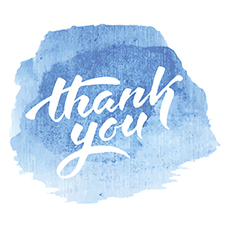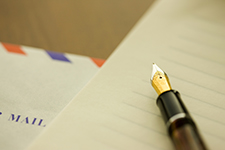 Did you know that January was National Mentoring Month? If you missed the celebration, it’s not too late to thank the mentors in your life who’ve helped you achieve personal or professional success.
Did you know that January was National Mentoring Month? If you missed the celebration, it’s not too late to thank the mentors in your life who’ve helped you achieve personal or professional success.
Return the favor
Mentors usually take time out of their own schedules to help you accomplish a task or learn a new skill. To recognize and appreciate their sacrifice, find ways you can return the favor. If you don’t think you have anything to offer your mentor, think again. While it’s true you may not possess the same depth of knowledge or experience, your time can be just as valuable. Many mentors offer their help and guidance without expecting anything in return, but even little examples of appreciation can go a long way.
Make a list of things you can do to help your mentor in his or her everyday life. For example, if you’re really good at planning, offer to help plan their upcoming vacation. Or if you’re great with animals, offer to watch their dogs while they’re away. Think about the industry your mentor is in, and where he or she is in their career. If your mentor is in a leadership role, consider sending them relevant, insightful articles about leadership. Or, forward articles about the trends in their particular industry, so they don’t have to spend time searching on their own.
Pass it on
Do you have skills, experience, or knowledge in a particular industry or craft? Perhaps you’re a really great writer, you excel in math, or you know the ins and outs of a popular computer program. If so, have you considered becoming a mentor?
As a thank you to those who have helped you along your path, you may be able to pass the favor on to someone else. If you’ve never considered becoming a mentor, take a few minutes to list all of the things you excel in or the skills that help you stand out. Can you teach those skills to others? Do you have a hobby people want to learn? Did your mentor do such a great job guiding you that you now feel capable of doing the same for someone else? Whatever your unique skills are, explore how you may be able to pass them on to others.
Endorse your mentor
If you’re on LinkedIn, you’ve probably noticed the endorsement capabilities of the social network. Endorsing allows you to publicly praise someone you’ve worked with so others know they excel in those areas. For example, you might endorse a co-worker with a knack for creating spreadsheets. Or, your boss may endorse you for your organizational skills. To thank your mentors, consider finding them on LinkedIn, connecting, and endorsing their skill sets.
You can provide endorsements in various areas, but ensure that you’re being honest about the ones you choose. While providing endorsements is a wonderful gesture, it’s important to make sure your mentor promotes the skills you select. You can also write your mentor a reference for others to view on LinkedIn. Remember to keep it positive, specific, and encouraging.
Thank your mentor
It goes without saying that you should be thankful for your mentor. It’s an essential part of maintaining a great relationship and showing appreciation. Even if you don’t have the ability to mentor someone else, return the favor, or provide LinkedIn endorsements, and you can always send a thank-you note.
Take a moment to write a nice letter, send a simple handwritten card, or draft an email. Your words of appreciation will go a long way with your mentor, and may even encourage them to mentor someone else. Let your mentor know how they’ve changed you for the better, inspired you, or helped you succeed. Share your wins and accomplishments, and explain how they’ve helped you get there. Your success is just as important to your mentor, and chances are, they want to celebrate with you.
Find a mentor today
If you don’t have a mentor, it’s not too late to find one. No matter what stage of life you’re in, or where you are at on your career path, you can always benefit from the knowledge and experience of others. You may find a mentor in a local industry organization, through networking events, or at your school. There are plenty of opportunities, so remember to keep your eyes open for those who can guide you and help you succeed.
Do you have a mentor? How do you recognize and appreciate their support? Share your tips in the comments section below!
Movin’ On Up is brought to you by Express Employment Professionals.





